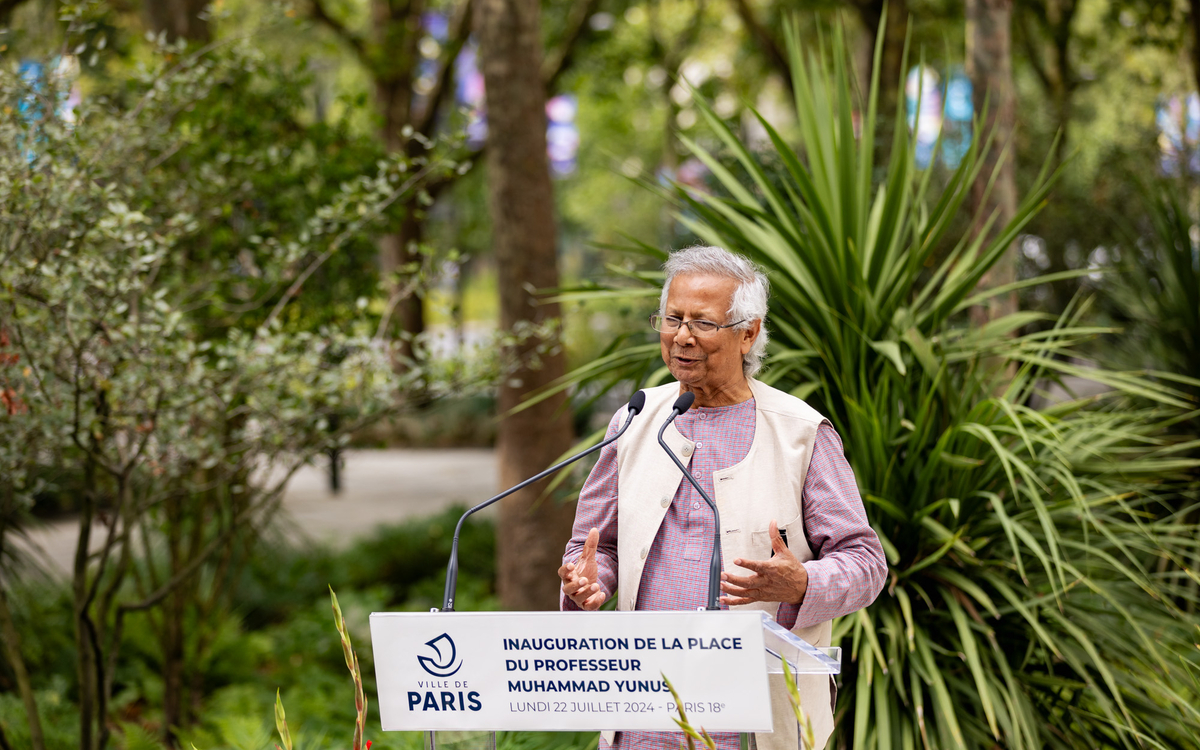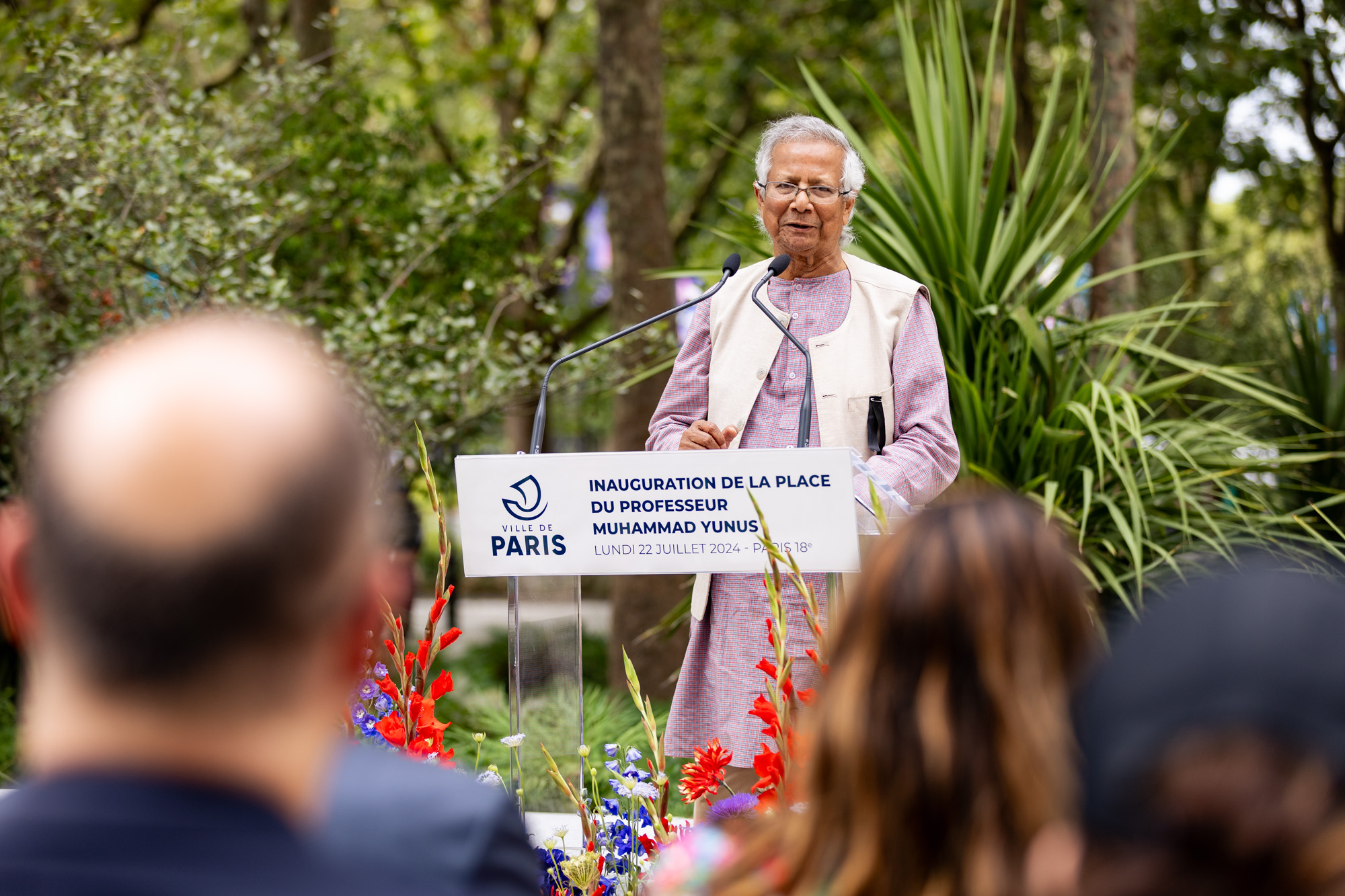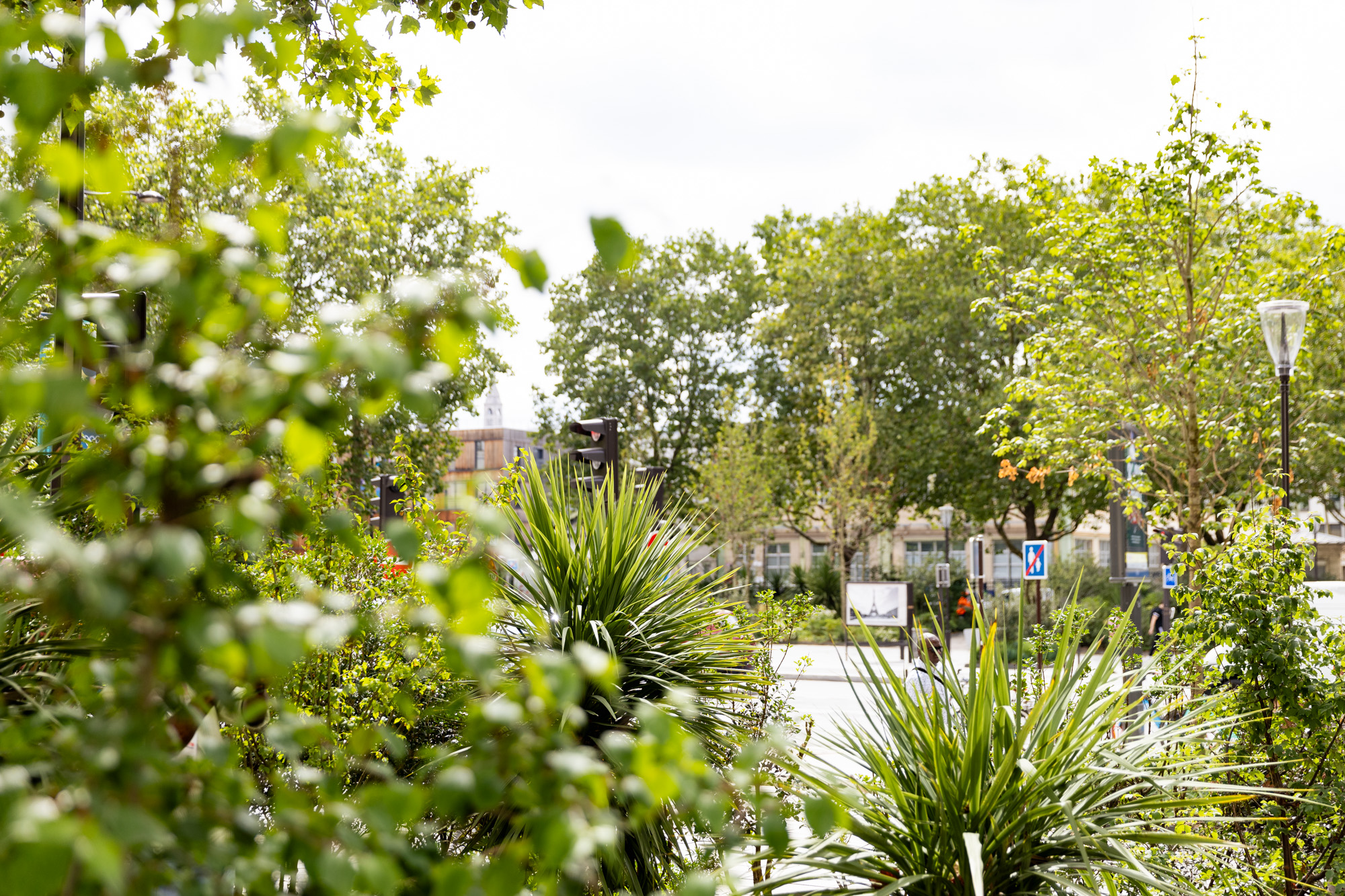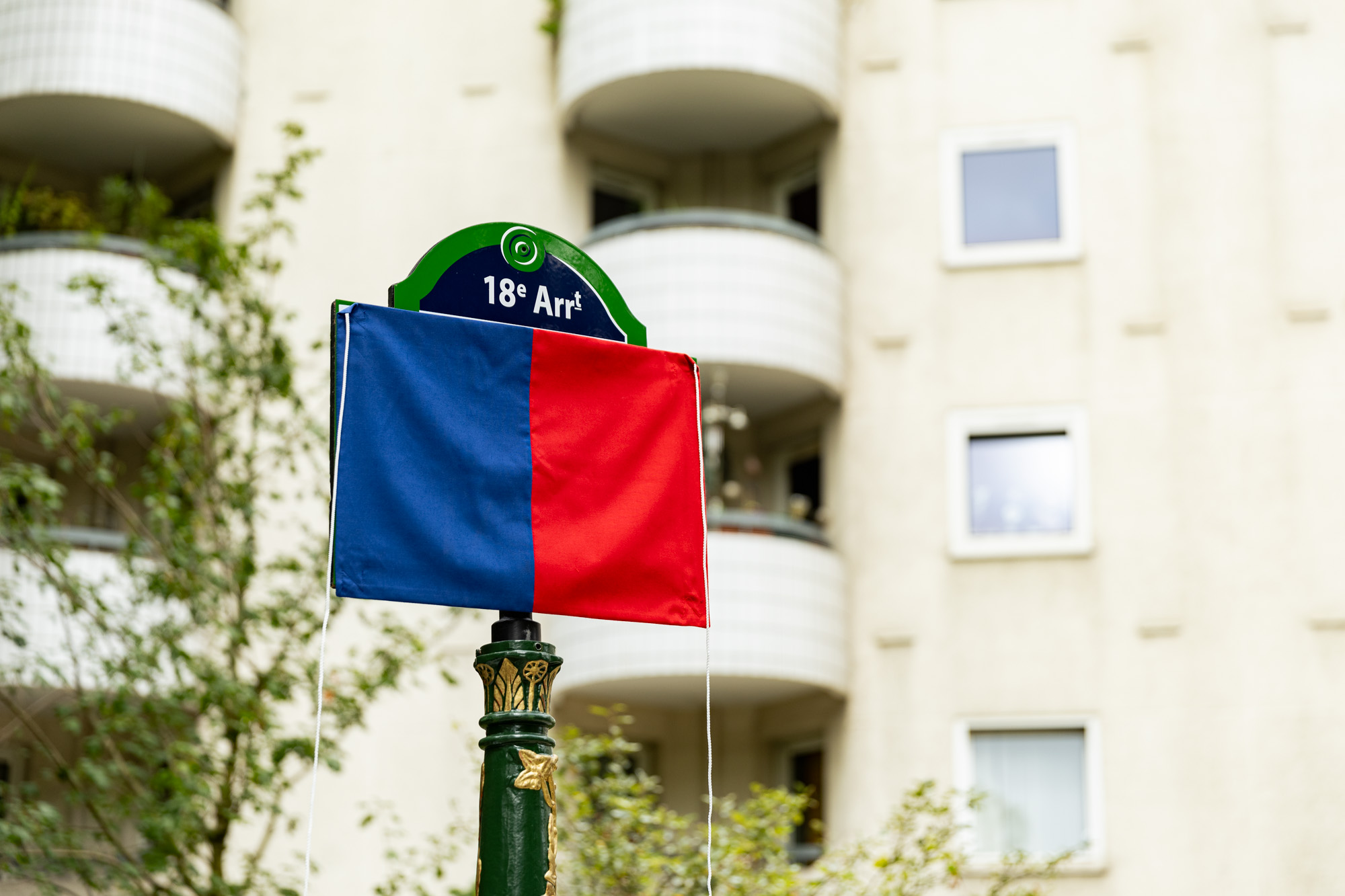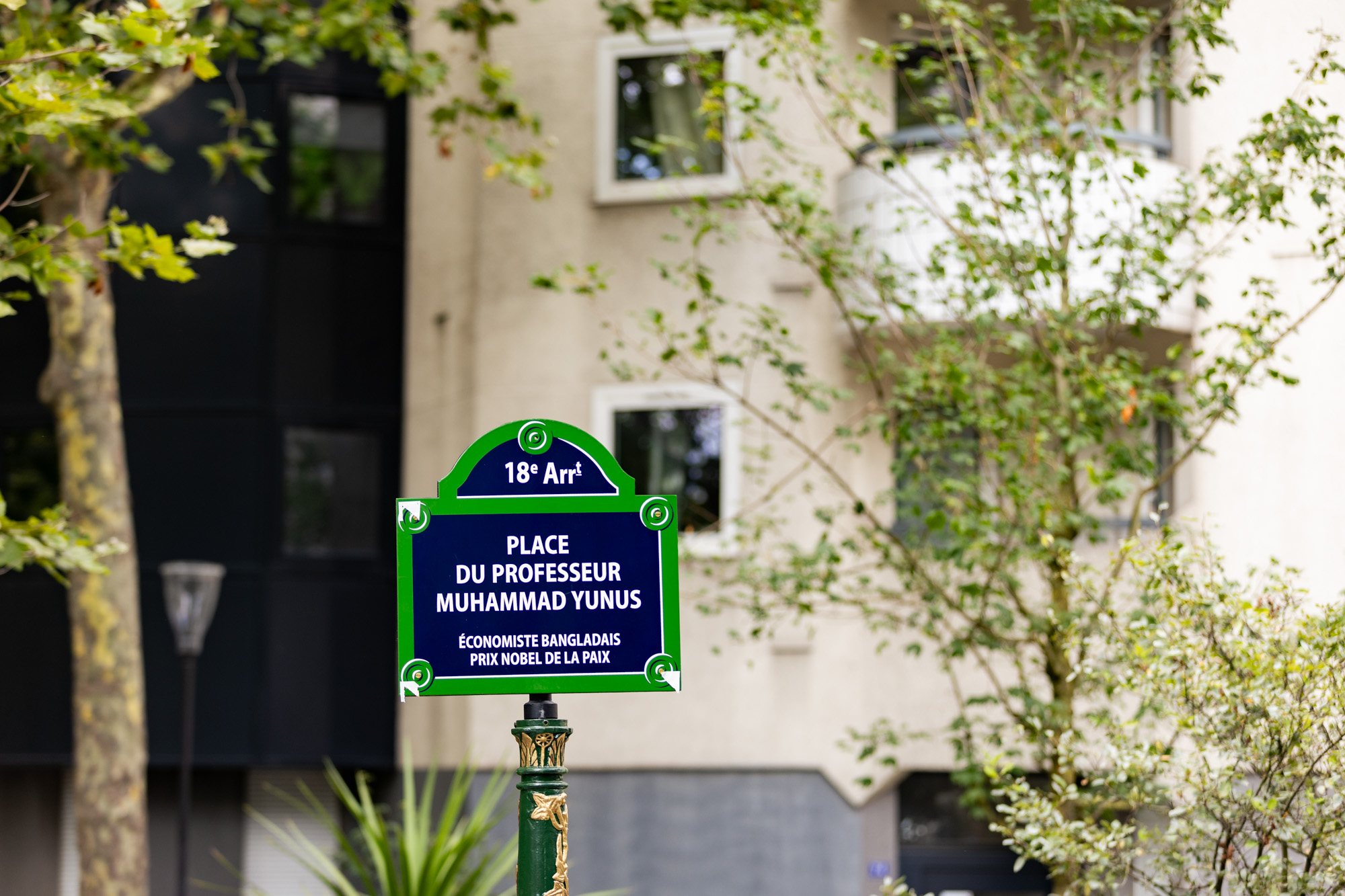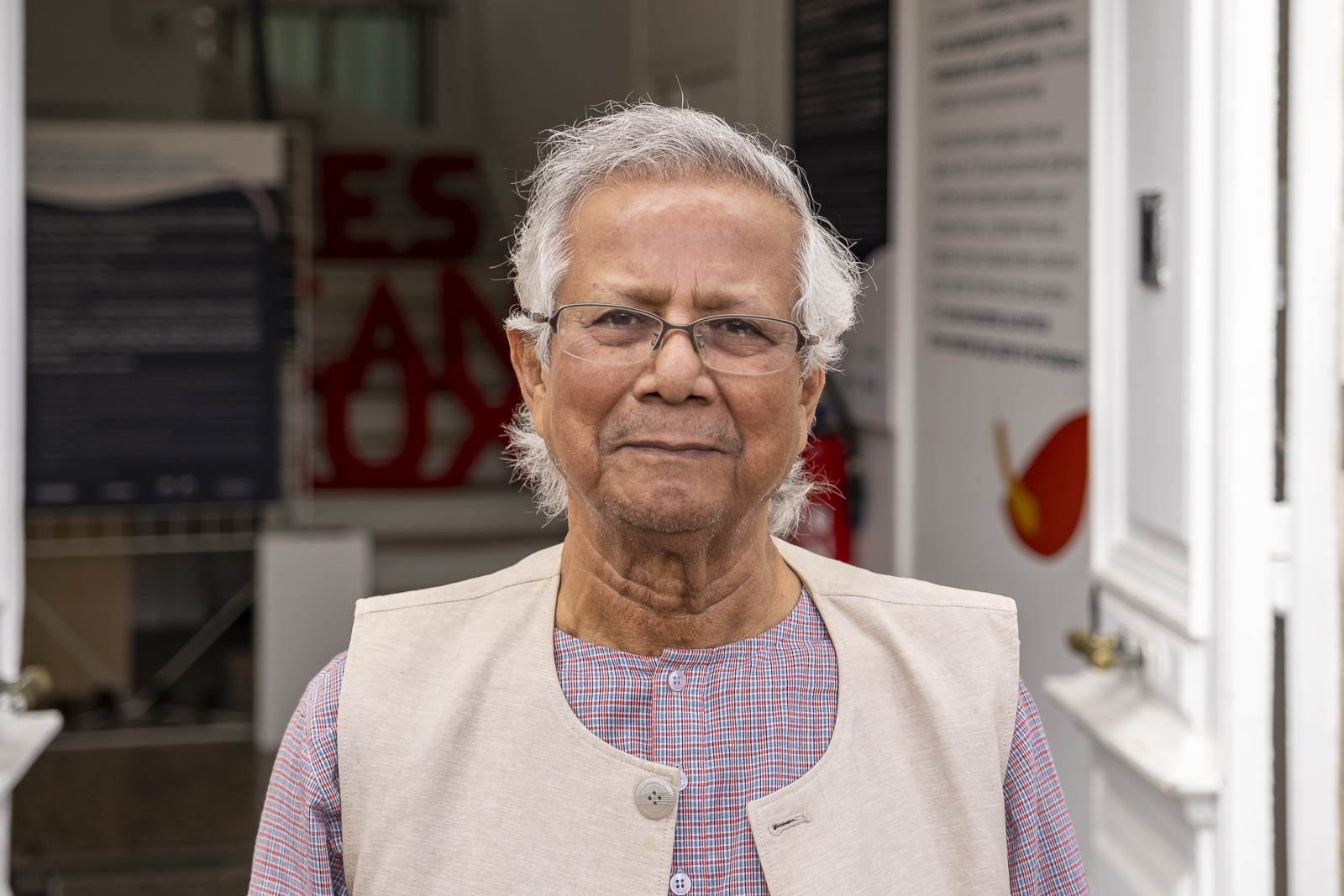Content
Cette page est aussi disponible en français
Place du Professeur-Muhammad-Yunus! Located near the Adidas Arena, this 18th arrondissement square now pays tribute to this Bangladeshi economist, inventor of microcredit, who was one of the ambassadors for Paris' bid to host the Olympic and Paralympic Games. Interview.
His arrival in the capital had been planned for a long time, but Muhammad Yunus is worried: his home country, Bangladesh, is going through a period of intense tension.His involvement in the Paris 2024 Games necessitated his presence in France. Therefore, we met him on July 22 at the Maison des Canaux (19th), the headquarters of the Yunus Center, just before he was due to attend the inauguration of the square that now bears his name. This square is located at the intersection of rue de la Chapelle, rue des Cheminots, and rue Raymond-Queneau (18th).
At a meeting on July 11, 2024, the Paris Council approved a deliberation. They considered the exceptional personality of Muhammad Yunus, a Nobel Peace Prize laureate, as a justification for an exception to the rule. This rule states that the name of a public figure may not be attributed to a public thoroughfare in Paris until at least five years after their death.
What does having a square named after you in Paris mean to you?
I could never have imagined it. Not only my family and friends, but the entire Bangladeshi population are proud! This is the crowning achievement of the work I've been doing for many years.
Paris is quite symbolic for me: I came here for the first time in 1972! At the time, I was living in the United States and returning to my country, which had just gained its independence… It was a dream. Since then, I've been back many times, and more regularly now that I'm an ambassador for ESS 2024.
Having a place named after me in a working-class neighborhood undergoing a major transformation […] is in line with the humanist and economic project I'm pursuing.
nobel peace prize
Having a place named after me in a working-class neighborhood undergoing major transformation and just a few meters from the magnificent Arena Porte de la Chapelle (19th arrondissement) is in line with the humanist and economic project I'm pursuing.
I already know that every Bangladeshi who visits Paris will come and take a photo in front of this plaque and enjoy the neighborhood. For them, it means that you can grow up in an emerging country, be successful and have an impact on a global scale.
What do you like best about Paris?
The people and their open-mindedness! When I started talking about my ideals for a socially, environmentally and economically responsible Olympic and Paralympic Games, everyone was enthusiastic. Paris is a city ready to lend an ear and a hand to crazy ideas… that have become a reality!
You have been involved with the Paris 2024 Games since the beginning of the adventure…
I met Anne Hidalgo in 2016 in Rio, where I was invited by the International Olympic Committee (IOC). Even though I don't know much about sport, I reminded her that organizing the Olympic Games can sometimes be socially damaging. And I boldly asserted that we could do things differently, by integrating a social and green dimension into the organization of this type of major event.
After my speech, the Mayor of Paris invited me to her table and together we developed the ESS 2024 project with players in the social economy, including a social charter: 25% of the contracts launched by the Games were to be reserved for local VSE/SMEs and SSE structures, and 10% of working hours entrusted to people on work-integration schemes.
Then there was the meeting with the IOC in Lausanne in 2017, where I accompanied Anne Hidalgo and Emmanuel Macron to present the idea and defend Paris' bid. When we found out we'd won the Games, 2024 seemed a long, long way off. How do we go about implementing this project? Would every euro spent by decision-makers have a social objective? We had to be creative and take action.
The Olympic Village buildings are not temporary: they will be redesigned and transformed into social and student housing once the athletes have left. My dream has become a reality!
nobel peace prize
And here we are, just a few days before the opening ceremony, and the challenge has been met: more than 3 million hours of work have been integrated into the Games' construction contracts, for the Olympic Village, the aquatic center and the Arena (i.e. 12% of hours worked), and 4,500 people have found employment in the construction contracts.
What's more, the Olympic Village buildings are not temporary: they will be redesigned and transformed into social and student housing (40% of them) once the athletes have left. My dream has become a reality!
Vidéo Youtube
Will you be attending the Games?
Yes, as much as I'd like to be with the Bangladeshis, I'm going to stay here, where I can share my concerns with the leaders I'll be meeting.
I'm also going to attend certain events, especially soccer, which is the most popular sport in my country. In fact, since I shook hands with Messi and Zidane, I've become even more popular there! And I'm more convinced than ever of the social power of sport.
From Boy Scout to Nobel Laureate
Muhammad Yunus, born in 1940 in Chittagong, Bangladesh, had a global perspective from his teenage years as a Boy Scout, traveling to Canada, Europe, the Middle East, and North America. A scholarship enabled him to study economics in the United States, after which he taught at Middle Tennessee State University. In 1972, he returned to Bangladesh and served as the deputy director of the government’s Planning Commission.
During a famine in Bangladesh in 1974, Yunus utilized his savings to establish long-term loans for impoverished project owners, who were considered unprofitable by the country’s banks. This initial experiment, expanded on a larger scale, led to the founding of Grameen Bank in 1983. Known as “the village bank,” it provides micro-credits to individuals excluded from the traditional banking system, without requiring any collateral from the debtor.
In recognition of their efforts to foster economic and social development at the grassroots level, Muhammad Yunus and Grameen Bank were jointly awarded the Nobel Peace Prize in 2006.
During a famine in Bangladesh in 1974, Yunus utilized his savings to establish long-term loans for impoverished project owners, who were considered unprofitable by the country’s banks. This initial experiment, expanded on a larger scale, led to the founding of Grameen Bank in 1983. Known as “the village bank,” it provides micro-credits to individuals excluded from the traditional banking system, without requiring any collateral from the debtor.
In recognition of their efforts to foster economic and social development at the grassroots level, Muhammad Yunus and Grameen Bank were jointly awarded the Nobel Peace Prize in 2006.
Interested in all things Parisian?
Default Confirmation Text
Settings Text Html
Settings Text Html
We want to hear from you!
Was this information useful to you?
Please note: we cannot reply via this form (please do not include any personal information).
